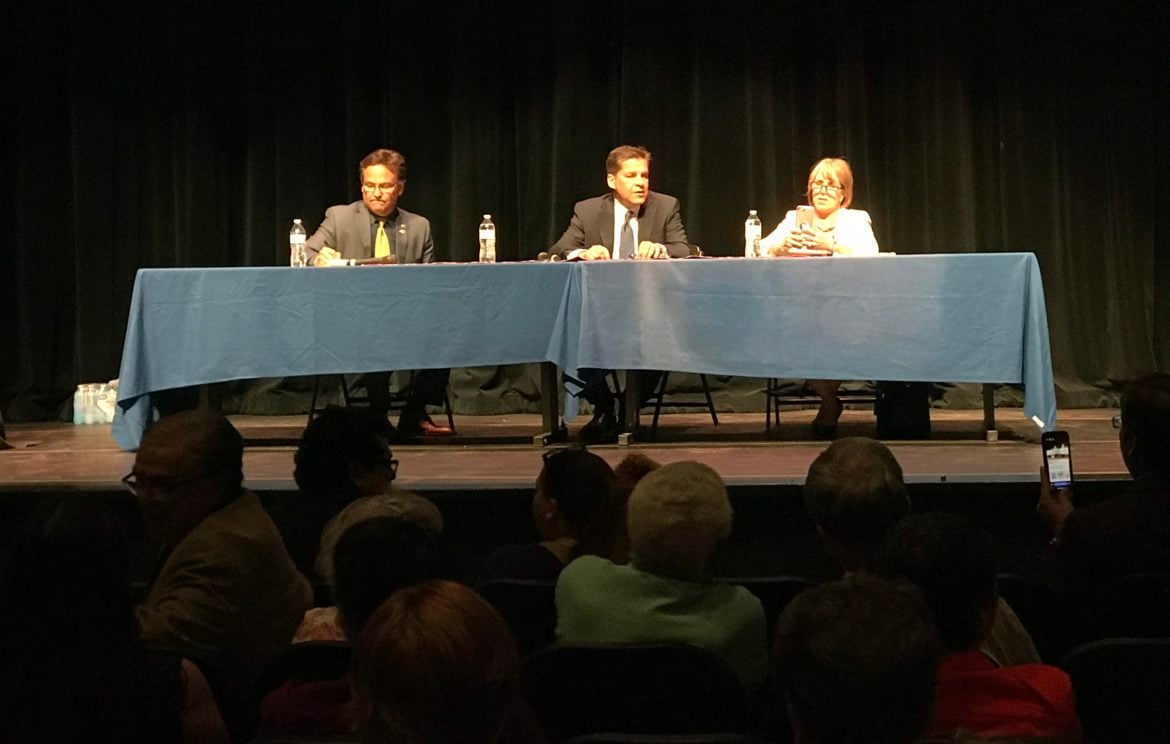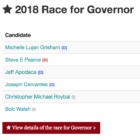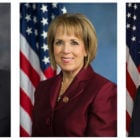2018 New Mexico Election
Democratic candidates say they’d nominate the anti-Skandera if elected governor
|
The three Democratic candidates for governor met in a forum in Las Cruces this week to showcase their plans to change the direction of New Mexico, which has suffered what some economists have called a lost decade after the Great Recession — a period when New Mexico lost more than 50,000 jobs, wages stagnated and more families ended up on public assistance. The evening at the Rio Grande Theatre before a nearly full house was at times testy, with former media executive Jeff Apodaca taking a potshot at frontrunner Congresswoman Michelle Lujan Grisham for skipping previous forums with her opponents in his opener, and lawyer and state Sen. Joe Cervantes calling out Apodaca on his lack of understanding about New Mexico’s water woes in the face of Texas vs. New Mexico and Colorado. But on the whole, the format kept crosstalk at a minimum, with no rebuttals allowed and candidates unable to directly question one another. The three Democratic hopefuls took on a wide array of topics, from legalizing marijuana (Apodaca: legalize, Lujan Grisham: legalize with safeguards, Cervantes: decriminalize), the behavioral health meltdown in the state, the state’s messy tax code, renewable energy plans, and education.


